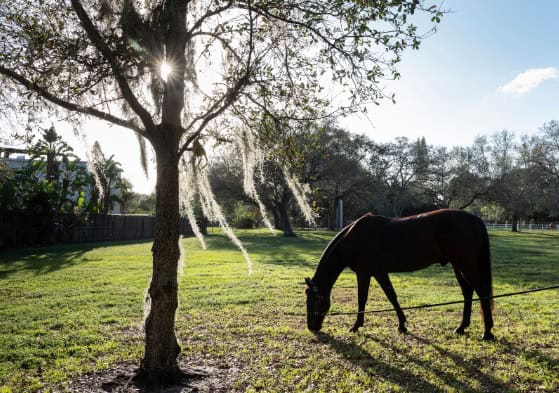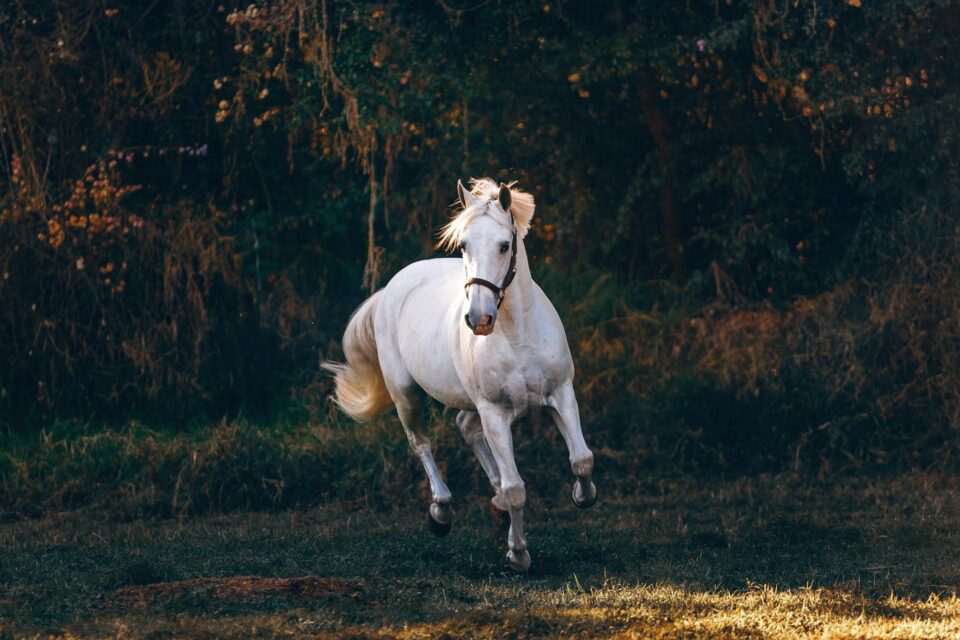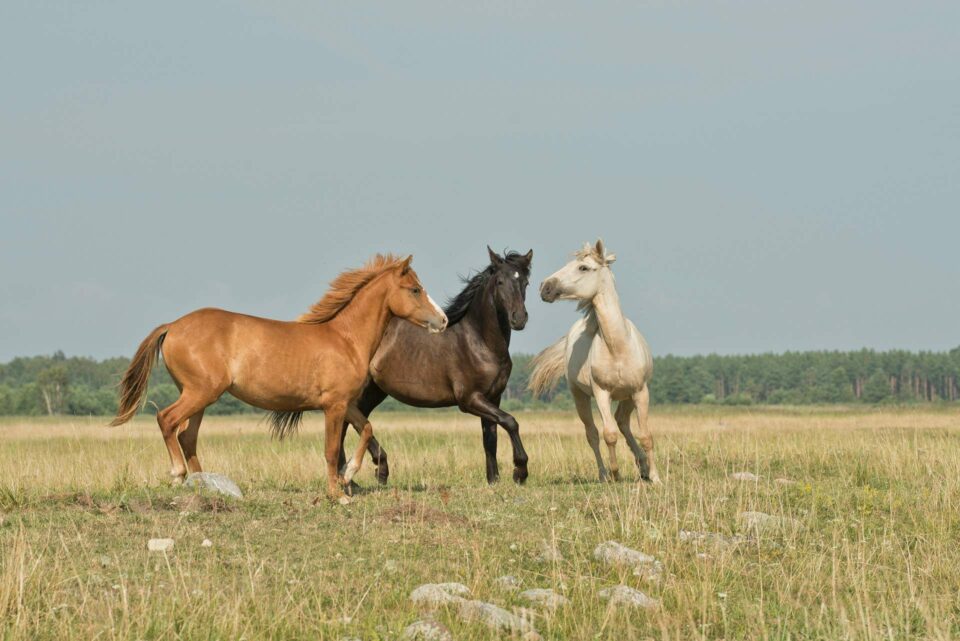
Horse Heat Cycles: How Often Do They Occur?
Understanding the heat cycles of horses is crucial for effective breeding management and mare care. Unlike humans or other domestic animals, horses have their unique patterns and frequencies of heat cycles that can be influenced by various factors. This article delves into the intricacies of equine heat cycles, comparing them with other species, and provides insights on managing mares during these periods.
Key Takeaways
- Horse heat cycles occur roughly every 21 days and can be influenced by factors such as season, health, and stress levels.
- Mares exhibit behavioral changes during heat cycles, necessitating supportive care, proper exercise, and stress management.
- Supplements and herbal remedies, like Moody Mare horse calmers, can aid in easing the discomfort associated with heat cycles.
Understanding Equine Heat Cycles
Frequency and Duration of Heat Cycles in Horses
As a horse owner, understanding how often horses go into heat is crucial for managing their health and behavior. Typically, mares experience heat cycles every 21 days, which can last from 3 to 7 days. During this period, they are receptive to breeding and may exhibit signs of estrus.
The regularity of these cycles can be influenced by various factors, including season, age, and overall health. For instance, mares are more likely to have regular cycles during the spring and summer months when the days are longer. It's important to note that while most mares follow this general pattern, there can be variations:
- Some mares may have shorter or longer cycles.
- Others might experience irregular cycles due to stress or health issues.
- Certain supplements and treatments, like altrenogest, can be used to regulate cycles.
By keeping a close eye on your mare's cycle and consulting with a veterinarian, you can ensure that any irregularities are addressed promptly for the well-being of your horse.
Related: TOP SIGNS YOUR HORSE MIGHT BE IN PAIN
Factors Influencing Heat Cycle Regularity
Understanding the factors that influence the regularity of your mare's heat cycles is crucial for effective management. Environmental conditions, such as changes in temperature and daylight hours, can significantly impact the frequency of cycles. Additionally, the mare's overall health and stress levels play a pivotal role. Nutrition, including the availability of certain minerals and vitamins, is also a key component in maintaining a regular cycle.
Genetics may provide insights into the predictability of heat cycles. Observations suggest that a mare might follow a similar heat cycle pattern to her mother or grandmother. It's important to consider the mare's age and breed, as these can affect cycle regularity as well.
Lastly, the presence of other horses, particularly stallions, can influence the timing and regularity of heat cycles. Being aware of these factors can help you anticipate and manage your mare's needs more effectively.
Soothe your equines through every phase, including the unpredictable heat cycles of horses, with our Calming Shampoo. Embrace tranquility in grooming—discover our versatile formula to keep your pets calm and comfortable.
Comparative Overview of Heat Cycles in Different Species
When you compare the heat cycles of horses to other species, you'll find fascinating variations. Female humans, for instance, typically have a cycle every 28 days, aligning closely with the lunar month. This regularity contrasts with the equine cycle, which can vary more significantly. Goats, on the other hand, have a shorter cycle, averaging around every 21 days.
In the canine world, dogs experience heat cycles much less frequently, approximately every 6-7 months. However, it's not uncommon for some dogs to have even longer intervals between cycles, sometimes extending beyond a year. Interestingly, there is anecdotal evidence suggesting that the timing between cycles may be hereditary, with daughters often mirroring the cycle patterns of their mothers.
Understanding these differences is crucial for managing and caring for animals across species. It allows you to anticipate behavioral changes and provide the necessary support during these periods. For your mare, recognizing the signs of her heat cycle and adjusting care accordingly can make a significant difference in her well-being.
Related: 4 PROBLEMS FACED BY ACTIVE HORSES

Managing Mares During Heat Cycles
Behavioral Changes and Supportive Care
When managing mares during their heat cycles, it's crucial to observe any behavioral changes that may indicate discomfort or stress. Do not panic if you notice signs such as increased sensitivity or restlessness; these are often part of the normal estrous cycle. Instead, consult with your veterinarian to ensure there's a complete understanding of your mare's health and to rule out other causes for the behavior.
It's essential to consider the impact of your actions on your mare's behavior. Before resorting to a horse calmer, examine the environment and management practices to identify any external factors that might be influencing her mood. Here are a few steps to support your mare:
- Rule out any underlying health conditions.
- Avoid making sudden changes to her diet or exercise routine.
- Consult with your veterinarian and trainer before introducing supplements or remedies.
Remember, a mare's well-being is influenced by both physical and emotional factors. By providing a stable and understanding environment, you can help ease the challenges associated with heat cycles.
Explore our Zen Wellness Care products for horses, designed to support them through their heat cycles with calmness and balance. Invest in your horse's well-being—discover our holistic approach to equine health today.
Exercise and Stress Management
When managing your mare during her heat cycles, it's crucial to strike a balance in her exercise routine. Ensure your horse is not confined to the stable for extended periods; regular turnout is essential for her well-being. Horses, by nature, require movement, and without it, they can become edgy and stressed.
Exercise should be tailored to your horse's individual needs and condition. Over-exercising can lead to fatigue, making your mare stressed and nervous. Here are some guidelines to consider:
- Aim for a natural amount of movement, close to 20 hours a day if possible.
- Monitor your horse's behavior during exercise; they will indicate when they've had enough.
- Adjust the intensity and duration of exercise according to your mare's response.
Remember, a relaxed mare is a healthier mare. Supplements like L-Theanine can help maintain calmness by supporting alpha brain waves, contributing to a relaxed but alert mental state. Additionally, ensuring adequate magnesium intake is vital, as a deficiency can lead to increased stress levels.
Related: BATHING YOUR HORSE: HOW OFTEN IS BEST?
Supplements and Herbal Remedies for Heat Cycle Relief
When managing your mare's heat cycles, you might consider integrating supplements and herbal remedies into her care regimen. Global Herbs FriskyMare Plus is one such supplement, a blend of traditional calming herbs designed to manage the behaviors and comfort of cycling mares, thereby reducing unpredictability.
Herbal supplements like Mare Moods can support natural progesterone and testosterone levels, contributing to reproductive organ health and aiding mares with hard and frequent heat cycles. Ingredients such as Eleuthero, Sarsaparilla, Damiana, and Kelp are often included for their beneficial properties.
Here are some steps to consider when choosing a supplement:
- Look for products formulated specifically for equine use, like Silver Lining Herbs Mare Moods, which also helps maintain a normal disposition during heat cycles.
- Consider herbal calmers that contain ingredients such as cramp bark, raspberry, and vitex agnus castus, known for their soothing effects on hormonal changes.
- Always consult with your veterinarian before adding any new supplement to your mare's diet to ensure it's appropriate for her specific needs.
Understanding and managing your mare's heat cycles is crucial for her well-being. At Gou Gou Pets, we offer a range of holistic infused grooming and wellness products that can help ease her discomfort during these times.
Visit our website to explore our products and take advantage of our special offers, such as free shipping on orders over $49 and a 15% discount for leaving a review. Ensure your mare's comfort and health with Gou Gou Pets' quality care products.

Understanding Equine Heat Cycles
The reproductive cycles of horses are a complex interplay of biology, environment, and care. Unlike the more predictable cycles of humans and some other animals, equine heat cycles can vary significantly, typically occurring every 18 to 21 days. Factors such as exercise, stress, and nutrition can influence these cycles, and understanding them is crucial for proper horse management. Products like Mare Moods can help stabilize hormonal fluctuations, ensuring the well-being of mares during their cycles. It's important for horse owners to be observant and responsive to the needs of their horses, to maintain not only reproductive health but also overall equine happiness and performance.
Share
